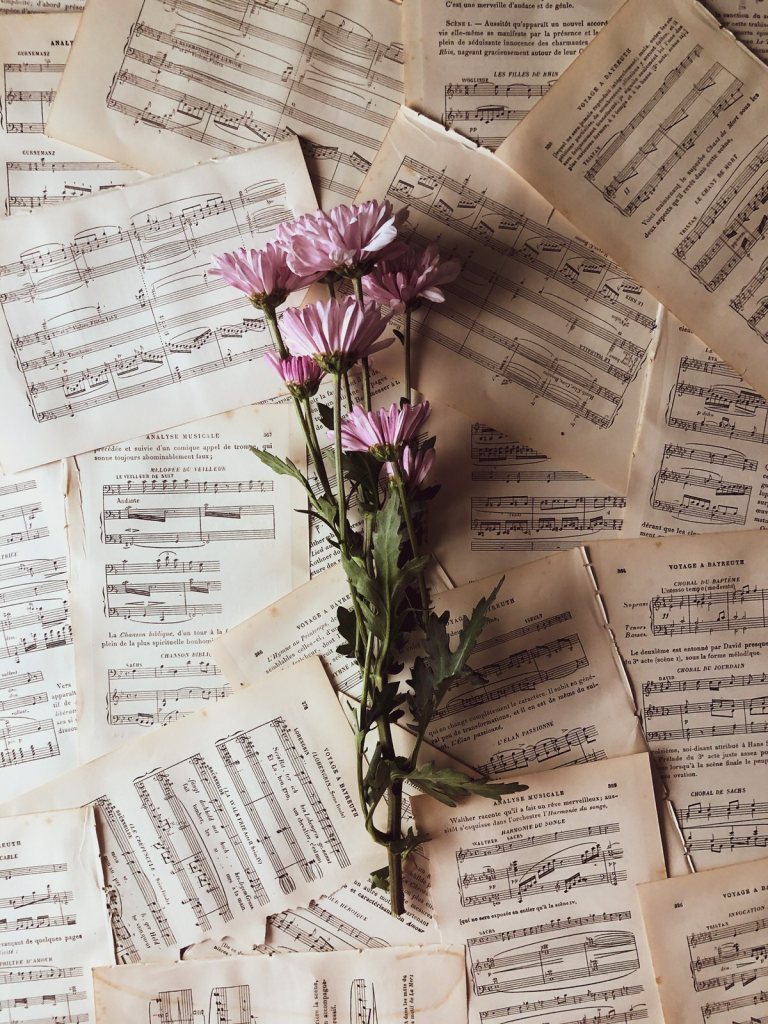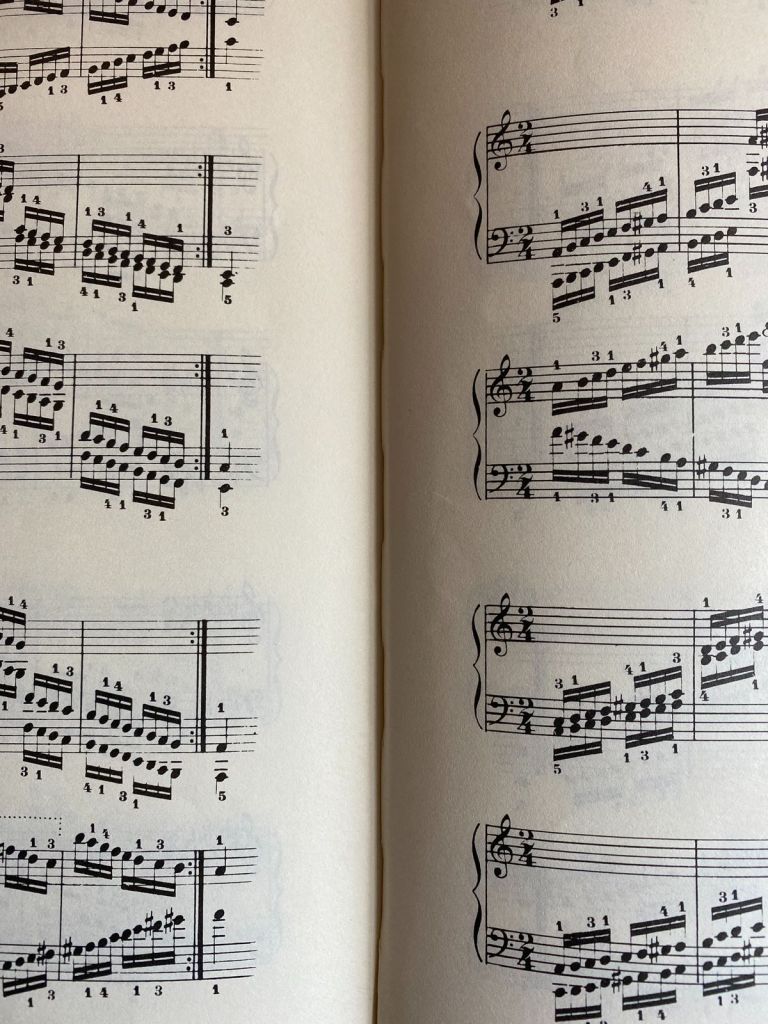When news broke of Martin Amis’s death in May, I ordered a copy of his essay collection The War Against Cliché, and set about learning how to write.
As it turned out, some of the Amisian impulse to strike cliché from the page was already there. For the past few years, I have compiled my own personal word prison, a verbal vending machine where overused words, prosaic words, rancid and disgusting repetitions, awful alliterations, and awkwardly-handled analogies go in, and dopamine comes out.
The idea of a word jail isn’t confined to my Apple Notes pages, though. There’s a reason that publications like the New Yorker or the Guardian have lauded style guides; though they’re usually more concerned with issues like whether it should be “soundworld” or “sound world,” from their general tone, you can get a pretty good idea about what’s hot and what’s not. In a tough moment for classical music journalists living lightyears away from the zeitgeist, I was today years old when I discovered that Gawker (RIP) banned “girlboss,” “vibes,” and “flop era” from its pages as early as October 2021. The Guardian guide’s entry for “clichés is in itself a bit of a cliché, including the tepid, grade C-ers “at this moment in time,” “with all due respect,” and “to be perfectly honest with you,” while somehow overlooking the A-grade skin-crawler, “reaching out.”
Occasionally, rulings on more specific clichés emerge from behind the curtain. A tweet from Martin Hemming, recalling the banned words and phrases list from the travel section of the Sunday Times, revealed that “chocolate-box” (a descriptor frequently attached to cottagecore English villages), “gems” (especially if they’re hidden), “stunning,” “stunning,” and, finally, “stunning” were automatic no-no’s.
Writing about music is a different beast. Because it’s less tangible, replicable, and relatable, in theory, it’s less possible to have clichéd thoughts about music than it is about travel, what with its “quintessential rolling hills” and its “verdant vistas.” In practice though, that doesn’t preclude music writing from its own brand of clichéd thoughts and/or tired descriptions. (If you’re reading this thinking, who does this dude think he is, I am a serial offender in both the “lazy writing” and the “no time/large space/limited imagination” categories. Recently—embarrassingly recently, in fact—I dreamt up the phrase “a thousand yard stare in a hundred foot room” and thought to myself, Ooh, that sounds original. Rather than: Wow! Your most hackneyed turn of phrase so far! My heart goes out to the scribes writing their 94th artist bio of the day, but if you’re on your first, and it’s your own, there’s really no excuse.)
How do you grapple with cliché? On the one hand, you can, as Amis suggests, ostracize it, confining cliché to a lifetime staring at the four walls of a Notes prison. Alternatively, you can rehabilitate it: study its conventions, engage with it as a way of learning more about a particular world, and eventually let it go, allowing it to live a life freed from the shackles of its original context. I hear the phrase “rising to a crescendo” so often nowadays—and not just because I have listened to nearly all of 262 episodes of the Football Clichés podcast—that my pedantic reflex for that particular eggcorn has been almost wiped out. (This jail favors the first approach, but there’s nothing stopping readers approaching it with a view to the second.)
For the most part, the time for orchestral season announcements—including the most tired spiels from (overworked, underpaid, undervalued) arts marketers—has passed, and we’re fast approaching the season proper, with the whirr of the fresh promotional material and newly minted artist biographies. With that in mind, I decided to ask some people in the classical music business—plus members of the internet community—what they thought were the worst offenders in this particular lexicon. If Tchaikovsky and Beethoven represent the warhorses of our repertoire, what are the warhorses of our vocabulary?
The Modest Ones
Olivia Giovetti, editor, VAN Magazine (and suggested by many, many others)
“X is one of the leading Ys of their generation.” If everyone is leading, then who is following?
Vijay Iyer, pianist and composer
“A composer at the height of his powers.”
The Very Specific Composer Ones
Gordon Hamlett, author of Best Birdwatching Sites in the Scottish Highlands
“Witty” when applied to any piece by Haydn. I’ve never laughed yet…
Jeffrey Arlo Brown, editor, VAN
When, in 1982, Gérard Grisey told a group of young composers at Darmstadt, “We are musicians and our model is sound and not literature, sound and not mathematics, sound and not theater, visual arts, quantum physics, geology, astrology or acupuncture,” it was a genuinely provocative point of view, couched in a funny one-liner. Now everyone acknowledges the primacy of sound, making that view no distinction at all. Even Jörg Widmann, whose music is as blergh as it gets, earns the same description from the Berlin Phil: “The sound is everything for him.” Yeah, he’s a composer.
Garry Walker, music director, Opera North
“Mahler Eight is a game of two halves.”
The “Big Hat, No Cattle” Ones
Olivia Giovetti
Describing a new production or recording as “cutting-edge,” “revolutionary,“ or a “reimagining of“ whatever warhorse is being performed. I get that people are trying to justify adding another recording of the “Goldberg Variations” or another new production of “La Traviata“ to the pile, but these phrases mainly set audiences up for disappointment. I’d much rather that effort go into giving a compelling performance of the work at hand. (Though, given how little effort it takes to call either of those things “revolutionary,“ perhaps I’m just setting myself up for disappointment.)
Neil Fisher, deputy arts editor, The Times
Today I’m feeling particular hostility to “genre-defying.” It’s corrosive as it implies that a “genre” is something that keeps us penned in, like sheep. The consequence is to make classical music itself seem “safe” while those who are writing music that “doesn’t sound like classical” are doing something wildly punkish.
Patrick Allies, choral conductor and artistic director, Siglo de Oro
Choirs in London (mine included) always end up describing themselves as “dynamic,” which doesn’t really communicate anything helpful.
Hugh Morris, editor, VAN
“Emerging.” Could be a useful term, if anyone agreed on when it started, when it ended, or what it actually involved. Instead, it’s used as a cloak for all kinds of nefarious artsworld stuff. Bin!
The latest from VAN, delivered straight to your inbox
The Adjectives in Need of a Vacation
Leah Broad, author of Quartet: How Four Women Changed The Musical World
- Greatest
- Masterpiece
- Calming
- Soothing
Anne Midgette, writer and former music critic of the Washington Post
- Spiky (about contemporary music).
- Stentorian (about operatic basses).
- Accessible (about a tonal contemporary piece—I’m guilty of this because it was a quick way to telegraph to the core audience of older traditional fans that they might like to try it).
Jeffrey Arlo Brown
- “Alchemical,” or more commonly in its noun form: “Alchemy.” It had a good run, but it’s time to retire this one.
- “Thorny” (about non-accessible contemporary music).
Olivia Giovetti (plus many others online)
“Thrilled” (e.g., thrilled to make my debut at/thrilled to announce).
Hugh Morris
- “Sonic” (when used as an adjective ahead of something that is unquestionably sound-based).
- “Visceral” (Did you really feel it in your organs? Or was the violin just a bit loud?).
- “Battery” and “arsenal” to describe large percussion sections. (I’m guilty as charged with all my choices.) But what’s with the military theme? Could you have a “brigade” of percussion? A “squadron”? A “flotilla”? When will my husband return from war-related percussion clichés?
Rebecca Johns, associate director, Premier Communications
- “Neoclassical,” a word that has lost its intended meaning.
Hartmut Welscher, editor-in-chief, VAN
“Authentic.”
Julian Lloyd Webber, cellist and GB News presenter
“Stunning.”
The “Sound World” ones
Sarah Quinn, violinist, London Symphony Orchestra
“Sound world.”
Carmen Paddock, VAN contributor
“Sound world.”
Sam Olivier, former communications manager, Southbank Sinfonia
“Sound world.” I think it comes down to lazy writing. It’s as if you haven’t bothered to actually listen and try to interpret what the composer is doing. It doesn’t matter if what you sense or feel from the piece isn’t the actual intention—just give it a go and see if you can put words to it other than “sound world.”
The “Get With the Times” Ones
Lawrence Dunn, composer and commissioning editor, Bachtrack
“Maestro.” By now everyone understands this word is and always has been preposterous, but certain people insist on continuing to use it, often with some amount of passive aggressiveness. I cannot stand it. Even worse is “maestra.”
William Norris, arts management consultant
Mentioning the nationality of artists in lieu of saying anything interesting about them.
Neil Fisher
I’d add “classically trained,” although that’s usually used in the pop world to mean “someone went to music college, isn’t just a rock wastrel.”
The “Immersive” Ones
Benjamin Poore, VAN contributor
“Immersive” is a source of real ambivalence for me—I’ve used it too much myself. On the one hand, it seems completely redundant; surely any aesthetic experience worthy of the name should be absorbing enough to make you feel immersed, submerged, versunken…? So it rankles when it is used as a synonym for “standing closer to performers than usual.”
It’s a fascinating phenomenon: it betrays the real industry-wide anxiety that people might get bored if they just sat and listened to Schubert for a bit. And yet its use must come from an authentic enough wish—to want audiences to experience music as immediately and vividly as lots of us do.

The “Don’t Look Back In Anger” Ones
Caroline Potter, author, writer and researcher
“Unjustly neglected.” It’s used so frequently in print and in broadcasting to describe music that isn’t well-known but which the author/speaker wants to promote. I always think, How about music that’s justly neglected? when I hear the phrase.
Olivia Giovetti
“The new X” or “inheritor of Y’s mantle.” I remember back in 2005/06, when Anna Netrebko was taking off, at least two major music magazines both did cover stories on her with headlines calling her “the new Callas.”
Mahan Esfahani, harpsichordist
“He/she is a champion for music of [X time period.]”
Roddy Hawkins, lecturer in music, University of Manchester
“So-called.” As in, “Composer X emerged in country Y and was initially associated with the so-called Z (where Z is a school that helped to launch/tarnish their reputation).”
The “Artist Bios” Ones
Keval Shah, pianist
“In demand”—by whom!?
Jeffrey Arlo Brown
“Sought after”—by whom!?
Anita Datta, conductor
“X maintains a busy schedule of…” (Why are we so proud of being busy, by the way? Boo Capitalism.)
Sarah Noble, freelance writer and arts administrator
“…is equally at home on the concert platform.”
… And the One that Just Won’t Quit
David Taylor, arts consultant
“Delighted to announce…” The industry standard catch-all phrase used by marketers, musicians, and anyone in between. So overused, it has its own Twitter account.
…plus its faux self-aware cousin.
Jeffrey Arlo Brown
“Everything is terrible, but I’m delighted to announce…” ¶
Subscribers keep VAN running!
VAN is proud to be an independent classical music magazine thanks to our subscribers. For just over 10 cents a day, you can enjoy unlimited access to over 875 articles in our archives—and get new ones delivered straight to your inbox each week.
Not ready to commit to a full year?
You can test-drive VAN for one month for the price of a coffee.



